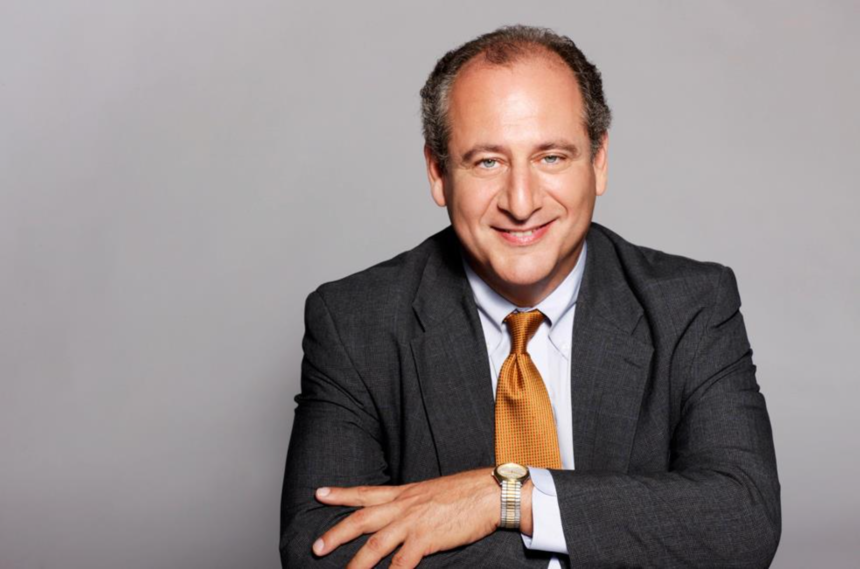David Phillips, an American expert, has stated that the priority of the strategic partnership with the United States should be Kosovo’s accession to NATO.
He recommended that the focus of this dialogue with the U.S. should also address the Kosovo-Serbia dialogue and efforts to normalize relations between the two countries, based on the principle of reciprocity.
Phillips considers the agreement on a strategic dialogue, which was recently announced by President Vjosa Osmani, to be essential. According to Osmani, the agreement will cover key areas and strengthen the strategic partnership between the two countries.
Phillips outlined the issues the agreement should address.
“The strategic dialogue should focus on the fight against violent extremism and Kosovo’s role in the global fight against terrorism. The dialogue should also consider Kosovo’s future NATO membership, as well as the steps and timelines for Kosovo’s integration into Euro-Atlantic institutions,” Phillips said in an interview with Koha.
Strategic dialogue between the U.S. and other countries is a forum to deepen partnerships in several areas, including security, economy, and people-to-people relations.
Phillips emphasized that the Kosovo-Serbia dialogue, specifically the principle of reciprocity, should also be part of the dialogue with the U.S.
“The Kosovo-Serbia dialogue should also be addressed, including steps that Kosovo can take to break the deadlock. If Kosovo makes concessions to its Serb minority, there should be parallel concessions from Serbia towards the Albanian communities in Preševo,” Phillips pointed out.
In addition to Kosovo, Serbia is also seeking to enter into a strategic dialogue with the United States. Serbian officials have repeatedly stated that it is important for the U.S. to understand Serbia’s position on the Kosovo issue.
However, Phillips argues that the dialogue with Serbia should aim to detach it from Russia.
“The strategic dialogue should focus on security cooperation between Serbia and Russia, aiming to halt such cooperation in the future, including Russian bases and the re-use of arms,” he said.
The sanctions imposed by the U.S. Treasury Department on 300 Russian entities worldwide, including NIS Petrol in Serbia, were central topics in meetings between Serbian and American officials.
Regarding the dialogue, U.S. Deputy Secretary of State for Management and Resources, Richard R. Verma, after meetings in Kosovo and Serbia, said that both countries should work towards normalization through EU mechanisms.
During Joe Biden’s presidency, U.S. involvement in the Kosovo-Serbia dialogue was only through the Special Envoy for the Western Balkans, Gabriel Escobar.
During Donald Trump’s first presidency, a special envoy for the dialogue was also appointed. Under Richard Grenell’s mediation on February 4, 2020, Kosovo and Serbia signed the so-called economic normalization agreement. This agreement, which also included recognition of Kosovo’s independence by Israel, was never fully implemented.
After returning to the White House, Trump appointed several individuals to various positions, but did not appoint a special envoy for the Kosovo-Serbia dialogue. He did appoint Marco Rubio as Secretary of State and Richard Grenell as a representative for “special missions.”
Before leaving the White House, President Joe Biden updated the Executive Order (EO) on sanctions against those aiming to destabilize the Western Balkans.
The directive sets out the legal framework under which sanctions may be imposed, including the actions that are sanctionable, the type of individuals, and the measures that can be taken.
The U.S. president justified the directive by developments regarding events in the Western Balkans. Among other things, the sanctions could target those who attempt to challenge UN Security Council Resolution 1244 on Kosovo.
According to the new order, sanctions apply to anyone that the U.S. Treasury Department, in consultation with the U.S. State Department, determines to be a leader, official, or member of an entity, including a government entity, that has participated or attempted to participate in any of the activities outlined in the previous regulation.
The measures will also apply to the spouses or adult children of individuals whose assets and interests in property are blocked in accordance with the regulation.







